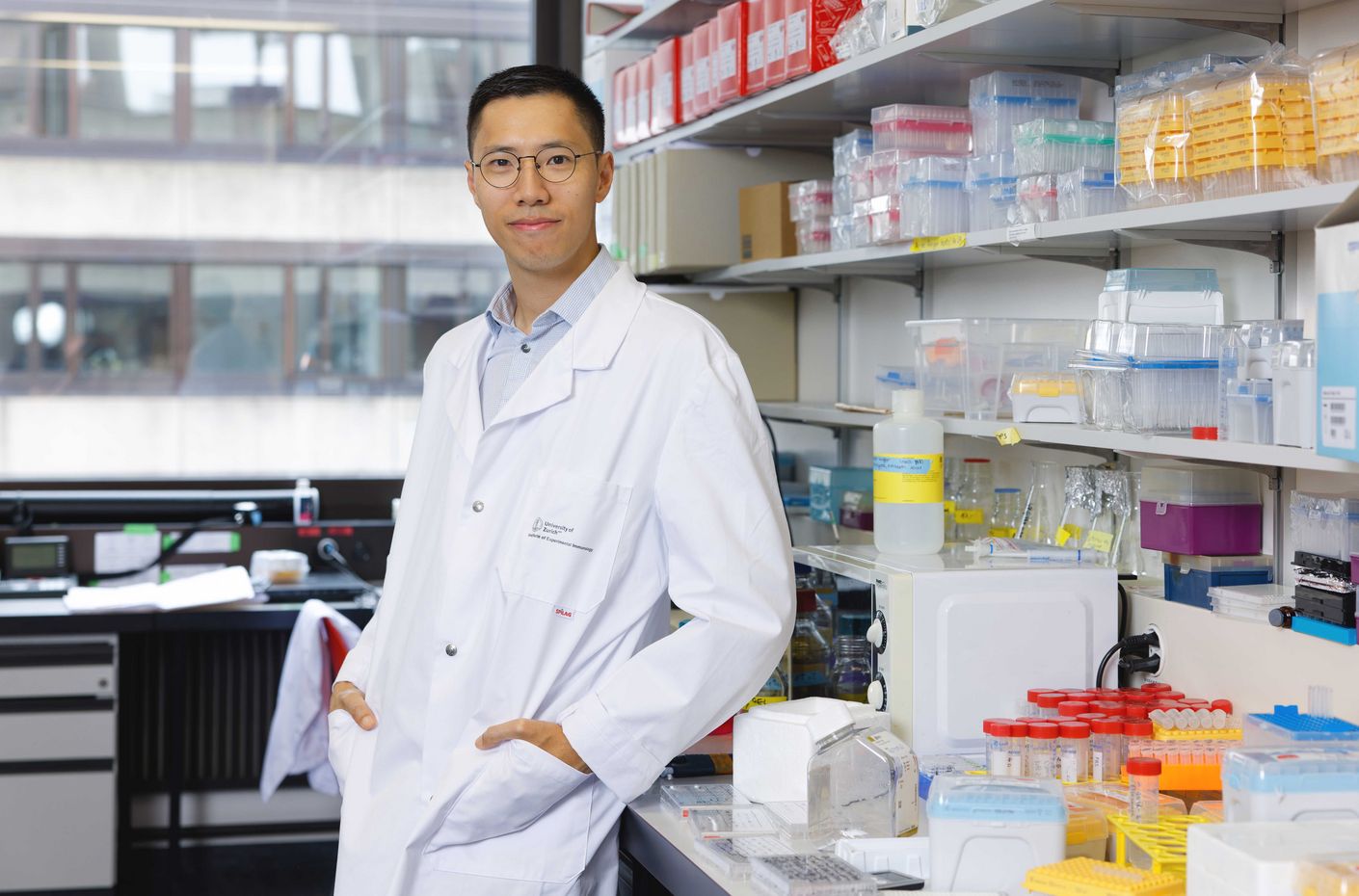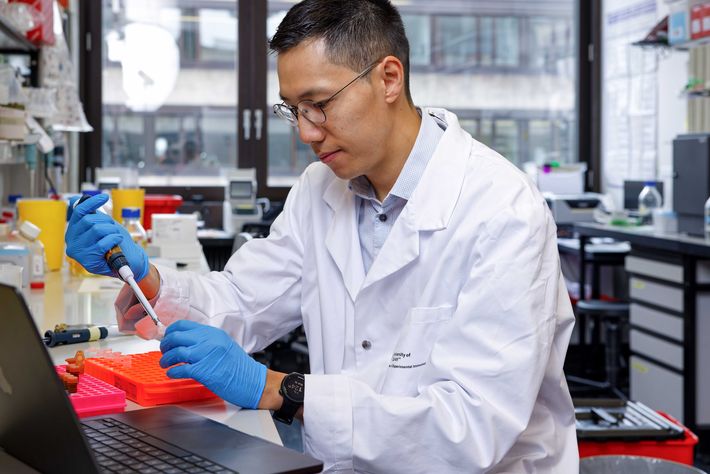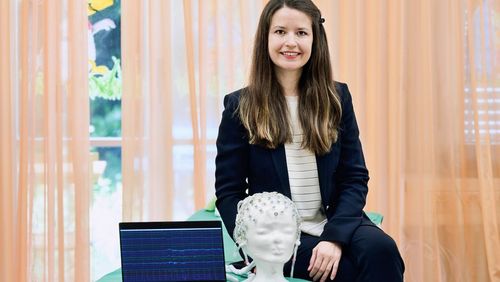
Success in his blood
Whether as an elite athlete, a successful molecular biologist or a budding entrepreneur, Kevin Yim gives his all. Thanks to a University of Zurich MedTechEntrepreneur Fellowship in 2024, he founded his start-up company EVIIVE to market his efficient diagnostic and prognostic method for patients with sepsis and melanoma.
Before Kevin Yim became a researcher and entrepreneur in Zurich, he was a competitive racing cyclist in his native Hong Kong. When he was twenty-two, he ranked among the top twenty racers in Asia—and realised he had reached his limit. But that was less of a problem for Yim, because he had already discovered a new passion while studying biology at the University of Exeter in England: molecular biology. Or more precisely, extracellular vesicles (EVs). Put simply, EVs are “words” that cells use to communicate with each other. Put in more scientific terms, EVs are nanometre-sized membrane particles that are released in large quantities from both healthy and pathological cells and that transmit a complex set of information to other cells.
Yim was fascinated, and he wrote both his master’s dissertation and his PhD thesis on EVs. For this, he moved to the Institute of Experimental Immunology at the University of Zurich (UZH), where he also developed a novel test method for skin cancer and sepsis on the basis of EV analyses. The new method works with just a single drop of blood and delivers results within two hours—much faster than conventional blood tests that also require venous blood sampling.

Resilient and tough
When asked what has helped him most in his fast and successful transition into the world of science, he answers: “I’m pretty resilient and tough.” He explains that competitive cycling taught him that his own performance won’t guarantee a victory every time. “Like all researchers, some of my experiments fail, but I pick myself up again and carry on.”
He hit the first major roadblock in his research when he had just begun work on his PhD. His original idea had been to develop an EV test for infections in newborns, but he was unable to obtain the blood samples he would have needed. So he switched to the Cancer Immunobiology Lab headed by UZH professor Richard Chahwan, where he was able to test his EV-based diagnostic method on cell samples from adult skin cancer patients and then later again in a sepsis study at the University Hospital Zurich (USZ).
The patients participating in the USZ study had all been admitted to hospital with unknown infections. Yim’s diagnostic method achieved very good results: “Our method correctly identified that in ninety-three percent of the cases the patient examined would develop septic pneumonia.”
Real life and practical application
After completing his doctorate, Yim wanted to enter “real life”, as he says with a wink. Specifically, he wanted to make his innovative method widely available, so he applied for a UZH MedTechEntrepreneur Fellowship. Endowed with one hundred thousand Swiss francs, the scholarship—which is financed by the Werner Siemens Foundation—equips researchers with the knowledge and skills they need to set up their own business.
In the meantime, Yim has not only created a diagnostic kit for sepsis with his method: he’s also developed a prognostic method to predict how successful a standard therapy for melanoma will be. “In cases of skin cancer, doctors can use our kit to learn whether a patient will respond well to a standard therapy before the treatment even begins,” Yim explains. In addition, it can be used as a simple way to monitor the therapy’s success. “The method can, if necessary, be used on a daily basis to see if the therapy is effective, or if the cancer has returned.”
Setting up EVIIVE
In October 2024, Kevin Yim, Professor Chahwan and other partners founded the start-up EVIIVE. Financing has been secured for the next fifteen months—which theoretically means Yim would have time to relax a little. “Oh, I never really relax,” he says with a laugh. Obtaining the next round of financing is already keeping him busy: EVIIVE has to deliver yet more data from clinical trials to convince venture capitalists that the firm is worthy of investment.
Yim estimates it will take another eighteen months for the diagnostic and prognostic kits to be ready for market—a market that the future CEO envisions as very large: “First we’re planning to launch a melanoma test centre in Switzerland, then one in the US, then in Australia.”
Support systems
Setting up a business is an exciting and challenging undertaking. When asked who the most important person was for him on this rocky path, he answers, “My wife,” adding that there were naturally also mentors, professors, business partners and other kinds of support that were very instrumental and appreciated. But because a young entrepreneur has to knock on a lot of doors—mostly to hear: sorry, not interested, too soon, a bad fit—maintaining the energy and motivation to keep trying is essential. “For that, a partner is indispensable.”







